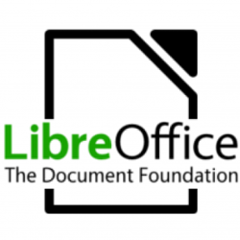The ODF Toolkit
The ODF Toolkit is a set of Java modules that allow programmatic creation, scanning and manipulation of Open Document Format (ISO/IEC 26300 == ODF) documents. Unlike other approaches which rely on runtime manipulation of heavy-weight editors via an automation interface, the ODF Toolkit is lightweight and ideal for server use.
The ODF Toolkit consists of four subcomponents:
-
ODFDOM (odfdom-java-*.jar) This is an Open Document Format (ODF) framework. Its purpose is to provide an easy, common way to create, access and manipulate ODF files, without requiring detailed knowledge of the ODF specification. It is designed to provide the ODF developer community with an easy, lightweight programming API portable to any object-oriented language.
-
Simple API (deprecated) - (simple-odf-*.jar) The Simple Java API for ODF is an easy-to-use, high-level Java API for creating, modifying and extracting data from ODF 1.2 documents. It is written in pure Java and does not require that you install any document editor on your system. The Simple Java API for ODF is a high level abstraction of the lower-level ODFDOM API
-
ODF Validator (odfvalidator-*.war) This is a tool that validates Open Document Format (ODF) files and checks them for conformance according to the ODF Standard. ODF Validator is available as an online service and as a command line tool. This page primarily describes the command line tool. Please visit the ODF Validator documentation for details.
-
ODF XSLT Runner(xslt-runner-.jar, xslt-runner-task-.jar) ODF XSLT Runner is a small Java application that allows you to apply XSLT stylesheets to XML streams included in ODF packages without extracting them from the package. It can be used from the command line. A driver to use it within an Ant build file, ODF XSLT Runner Task, is also available.
Getting Started
The ODF Toolkit is based on >=Java 9 and uses the Maven 3 build system. To build ODF Toolkit, use the following command in this directory:
mvn clean install
The simplest way to use these modules are just put the jars files in your classpath directly. If you are not using maven you can see the versions of the major components for your release in CHANGES.txt. There is more information about development on our project website.
Working on the first Pull Request
You can learn how from this free series: How to Contribute to an Open Source Project on GitHub.
Documentation
- The Home Page for the ODF Toolkit
- ODFDOM Getting Start Guide
- ODF Validator Getting Start Guide
- ODF XSLT Runner Getting Start Guide
License
See also LICENSE.
Collective work:
- Copyright 2011-2018 The Apache Software Foundation.
- Copyright 2018-2020 The Document Foundation.
This product has been created by The Document Foundation, incorporating many modifications from different contributors.
See the NOTICE file distributed with this work for additional information regarding copyright ownership.
Licensed under the Apache License, Version 2.0 (the "License"); you may not use this file except in compliance with the License. You may obtain a copy of the License at
http://www.apache.org/licenses/LICENSE-2.0
Unless required by applicable law or agreed to in writing, software distributed under the License is distributed on an "AS IS" BASIS, WITHOUT WARRANTIES OR CONDITIONS OF ANY KIND, either express or implied. See the License for the specific language governing permissions and limitations under the License.
The ODF Toolkit includes a number of subcomponents with separate copyright notices and license terms. Your use of these subcomponents is subject to the terms and conditions of the licenses listed in the LICENSE.txt file.
Mailing Lists
Discussion about ODF Toolkit takes place on the following mailing lists:
- Development and Users Mailing List
- Subscribe: dev+subscribe@odftoolkit.org
- Post (after subscription): dev@odftoolkit.org
- Unsubscribe: dev+unsubscribe@odftoolkit.org
- Mail archives
The mailing lists are open to anyone and publicly archived.
Issue Tracker
If you encounter errors in ODF Toolkit or want to suggest an improvement or a new feature, please visit the ODF Toolkit issue tracker. There you can also find the latest information on known issues and recent bug fixes and enhancements.
